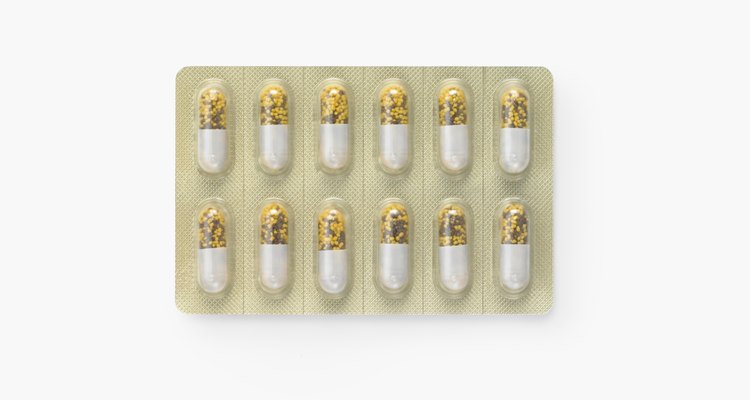
spoon/amanaimagesRF/amana images/Getty Images
1973 was an important year for the field of dermatology thanks to the pioneering efforts of a young biochemist by the name of Loren Pickart (1, 2). After extensive research on anti-aging using human blood and liver tissue, Dr. Pickart discovered GHK (Glycyl-L-Histidyl-L-Lysine), a human tripeptide with an affinity for binding to copper in the body (1). Much to Dr. Pickart’s surprise, this “copper peptide,” or GHK-Cu had the ability to revert the aging process of cells. Although GHK-Cu cannot be acquired through diet, you can still enjoy its rejuvenating properties by applying it topically as an oil or cream (3, 6).
Use in Skin Care
In the words of Emerson: “As we grow old, the beauty steals inward (8).” With the advancement of modern cosmetic technology, this statement embraces entirely new significance as scientists examine health and beauty at the cellular level. According to experts at the Cleveland Clinic, the benefits of GHK-Cu range from lengthening the life of your skin’s stem cells to scar tissue removal and repair (3, 4). GHK-Cu encourages your skin to produce the collagen and elastin necessary for a healthy glow and improves your body’s natural tissue regeneration cycles (2, 3, 4, 6). In the world of beauty, GHK-Cu products can improve your skin’s quality, firmness and elasticity, while minimizing unsightly wrinkles, discoloration and sun spots(6).
Disease Treatment
Metal homeostasis is the process of your stem cells maintaining optimal levels of essential metals for necessary bodily functions. Interference with this system, coupled with oxidative stress and inflammation, can put you at risk for degenerative diseases such as Alzheimer’s disease, dementia, Parkinson’s disease and overall cognitive decline (1). GHK-Cu’s antioxidant and anti-inflammatory properties may play a therapeutic role in treating such degenerative diseases because of one simple factor – copper’s ability to penetrate the blood-brain barrier (1). This natural impasse prevents a slew of dietary antioxidants from reaching your brain and relies on the antioxidant properties of your body’s stores of copper and zinc (1). While GHK-Cu's ability to cross into the brain remains unclear, Dr. Pickart and colleagues remain confident. In a 2012 overview published in Oxidative Medicine and Cellular Longevity, Pickart’s team noted that GHK-Cu can easily pass through the lipids of the epidermal layer of your skin and is likely able to reach your brain to deliver protective effects (1).
Wound Healing
Copper peptides have long been used as a safe and effective treatment for wound restoration -- a blessing if you suffer from diabetes mellitus or other illness that impair your body’s healing mechanism (1, 6). GHK-CU helps prevent inflammation and infection by inhibiting damaged body tissue from releasing iron, protecting you against harmful free-radicals and safeguarding tissue repair (1, 6). An ischemic wound occurs when the passage of blood is blocked, often leading to amputation and other life-altering complications. In 2003, a team of researchers at the University of Florida used laboratory rats to exhibit that applying GHK-CU to the surface of these wounds was enough to hasten restoration and shrink the wound area at rapid rate (5). This discovery and GHK-Cu’s capacity to renew blood-flow to damaged tissue may indicate that health professionals will be able to save limbs and reverse blood vessel disease as standard procedure (1, 5).
Sources and Side Effects
Copper peptide is found in human urine, saliva and plasma and decreases as you age (6). It must be isolated in a laboratory and can be given intravenously, via liposome capsule or topically (1, 6). Although there are no known food sources of GHK-CU, researchers hope to develop a dietary supplement for skin healing (6). There is scarce documentation of the harm in taking GHK-Cu internally or using topically, but that doesn’t mean you shouldn’t exercise caution – having high levels of copper in your body can cause jaundice, vomiting, diarrhea and abdominal pain (7). Before you try a new product lauded for its benefits, be sure to have a detailed discussion with your doctor.
Related Articles

Traditional Uses of Cuscuta

Elastin Supplements
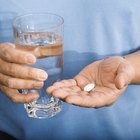
L-Arginine & the Skin

Does Milk Thistle Help Skin?
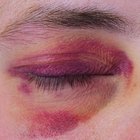
Bromelain & Bruising

What Vitamins Help the Liver?
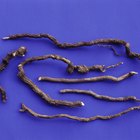
Benefits of Indian Sarsaparilla
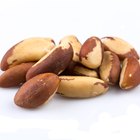
Selenium & Silica

What Foods Provide Calcium D-Glucarate?

What Is Aloe Good For?

Aloe Vera & Seborrheic Dermatitis

Collagen & Rosacea

Skin Care Products That Contain ...
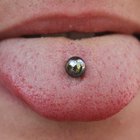
How Dangerous Is It to Pierce Your ...

Golden Flax Seed Vs. Dark Flax Seed

Zinc & Copper for Aging Skin

Zinc Treatment for Rosacea

Canned Salmon and Metal Toxins

What Are the Benefits of Extrapone ...

Copper Peptides Side Effects
References
- Oxidative Medicine and Cellular Longevity: The Human Tripeptide GHK-Cu in Prevention of Oxidative Stress and Degenerative Conditions of Aging: Implications for Cognitive Health
- Biochemical and Biophysical Research Communications: A Synthetic Tripeptide Which Increases Survival of Normal Liver Cells, and Stimulates Growth in Hepatoma Cells
- Cleveland Clinic: Skin Care and Cosmetics
- Journal of Peptide Science: Stem Cell Recovering Effect of Copper-Free GHK in Skin.
- Veterinary Surgery: The effect of topical tripeptide-copper complex on healing of ischemic open wounds
- Biomed Research International: GHK Peptide as a Natural Modulator of Multiple Cellular Pathways in Skin Regeneration
- MedlinePlus: Copper Poisoning
- Goodreads: Ralph Waldo Emerson Quotes
Writer Bio
Stephanie Chandler is a freelance writer whose master's degree in biomedical science and over 15 years experience in the scientific and pharmaceutical professions provide her with the knowledge to contribute to health topics. Chandler has been writing for corporations and small businesses since 1991. In addition to writing scientific papers and procedures, her articles are published on Overstock.com and other websites.
Photo Credits
spoon/amanaimagesRF/amana images/Getty Images